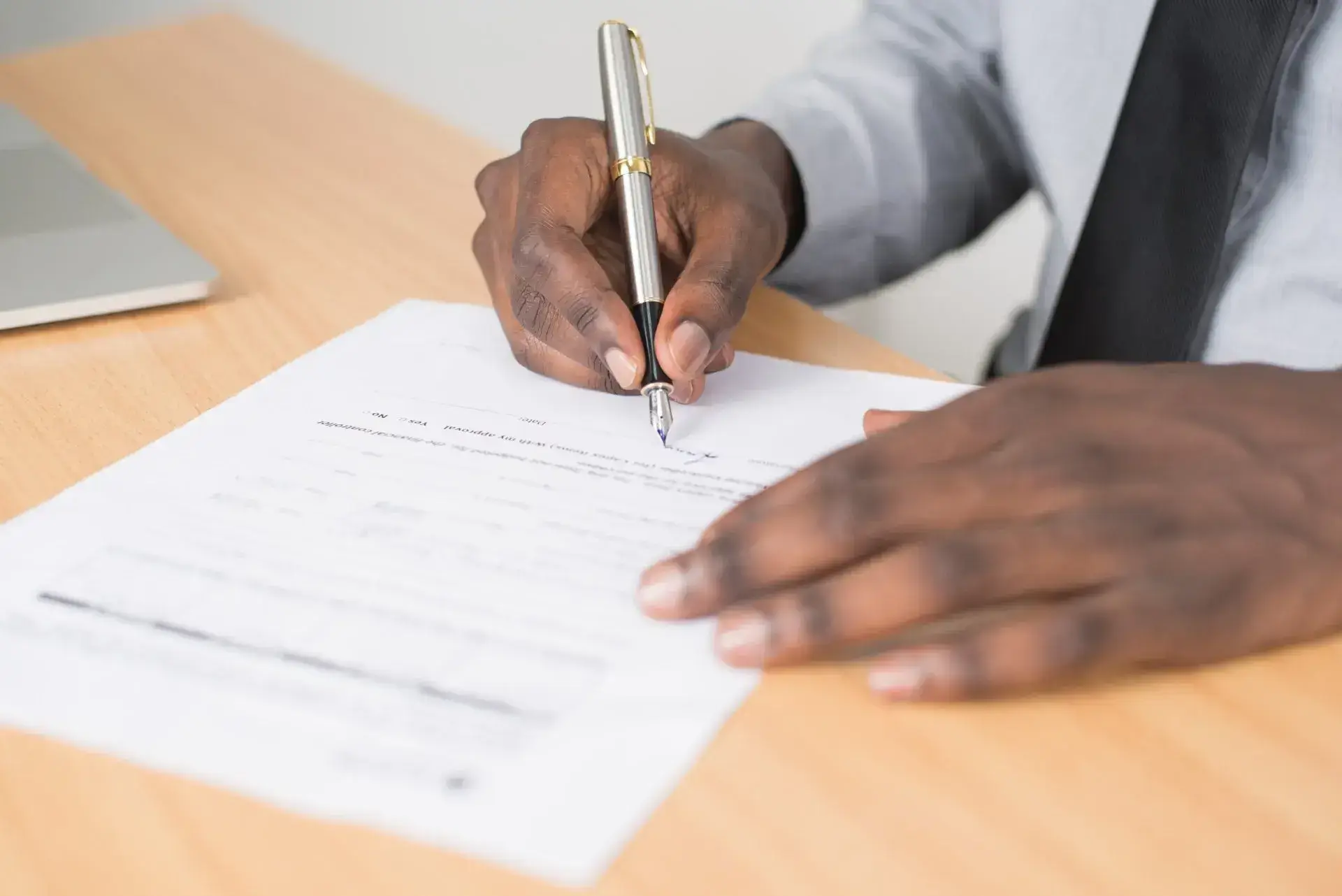What to do when someone dies
When someone dies, there are a number of things to consider in the immediate aftermath and the following weeks and months. The following guide outlines a lot of the important things to consider when someone dies in Scotland.
Is there a need to report a death?
If someone died from natural causes, generally speaking this will not need to be reported. However, a doctor will need to issue a medical certificate explaining the cause of death.
If a death was sudden, suspicious, accidental or unexplained, a doctor or the police may refer it to The Crown Office and Procurator Fiscal Service (COPFS) who may decide to investigate the death. This can often involve an examination (‘post-mortem’) which will delay the issuing of a formal death certificate.
Sudden and unexplained deaths
If a doctor decides that a death was clinically unexpected, it is described as a ‘sudden death’. A death can be described as a ‘sudden death’ even if the cause of death has been decided.
When the cause of death is not known or unclear to a doctor, this is described as an ‘unexplained death’.
Suspicious deaths
Deaths will be investigated where the circumstances suggest that criminal conduct caused the death. Any ‘suspicious’ death must be reported to COPFS.
Once a person’s death has been reported, COPFS will decide if an investigation needs to be carried out.
What is the process for obtaining a death certificate?
After a death, a medical certificate explaining the cause of death will be issued by a doctor. If the death didn’t happen in a hospital, you should call their GP to come and issue the medical certificate.
Normal practice since the Covid pandemic is for the doctor or hospital to email the medical certificate, along with your contact details, to the local council. The council then contacts you by email or phone to arrange a telephone appointment to register the death.
The council will tell you what information you’ll need to have for the appointment so you have time to prepare it. This typically includes the person’s birth certificate and marriage certificate (if applicable).
The death should be registered within 8 days of the death, unless there is some kind of investigation into the death taking place.
Extra certificates
It’s usually recommended to buy a few extra death certificates. This will make the process of dealing with the person’s financial affairs a bit easier because sometimes you need to post a death certificate to an organisation, and they might hold onto it for a while, or it may be lost.
For the most accurate and up-to-date information on obtaining death certificates, contact the local council to where the person who died lived.
Things to be done in first week after someone dies
Although many tasks can wait, the following is a list of the steps you should take within the first week:
- Notify relatives, friends, and their family doctor (GP).
- Notify their employer and/or educational establishment (if applicable).
- If they lived alone, cancel any deliveries (like newspapers or milk), collect valuables, secure their property, and make arrangements for any dependents or pets.
- Arrange a funeral. Check for a funeral plan that may have been created (and even paid for) already. Instructions may have been left with another family member, in their Will, or with their solicitor.
- If you relied on the person who has died for your right to live in the UK, you need to check whether or not you need a new visa.
- Find a Will (if they made one). Make sure it is the most up-to-date version by checking with close family and their solicitor, if they had one. You do not need to use their solicitor to help you with the estate. The executor can request the Will and decide what to do.
For more information on navigating the first week, download our free First Week Checklist.
Arranging and having a funeral
If the person who died didn’t leave instructions on what they wanted, it’s up to their family to decide what to do.
It’s important to remember that a funeral is for the people who live on - a chance to remember the person who died in a way that makes sense for the ones who were closest to them.
Generally speaking, a traditional funeral involving cremation costs around £4000, with a burial coming in about £1000 more.
If saving money is a top concern, a newer, lower cost option is direct cremation. Costing around £1000, the cremation happens separately, meaning you can choose how and where to do the service at a budget that works for you.
Find out more about arranging and having a funeral
Do I need to consult with a solicitor when someone dies?
There may be some legal work required at some stage, like selling a house or dealing with a dispute. However, by our estimates, in around 90% of deaths, things are relatively straightforward and could be handled by anyone who has the time and patience for administrative work, like corresponding with banks and paying bills.
If there’s nobody who is able or willing to do the work, then a solicitor service could be a good fit. But be prepared to hand over a big chunk of your inheritance to them for the privilege. Make sure to check online reviews, specifically for probate work (law firms often do lots of different types of work).
If you are dealing with an estate that only has a few accounts and a property, and everyone in the family gets along, then 9 times out of 10 you should only
need
a solicitor to be involved when you’re selling the house (or transferring it into someone else’s name).
If you need to get probate (or ‘Confirmation’ in Scotland) and you’ve never done it before, we can help you make sure you get it 100% right with one of our lower-cost fixed-price services.
Not sure if you need probate?
Use our online tool to find out in 1 minute
Already sure you need probate?
Find out how to apply and get a free quote
Who is responsible for dealing with the finances and legalities during probate?
If the person who died left a Will, there will be a person or people appointed (as an ‘executor’) to be responsible for dealing with all the financial, tax, and legal affairs. It’s possible for people named as executors to resign or appoint other executors to act with them or instead of them. Someone else could do the legwork on behalf of an executor, but the executor will have to sign papers and show ID to places.
If a solicitor is listed as an executor, the family is well within their rights to ask the solicitor to resign and hand over all the deceased person’s papers.
Locating a Will
To find a Will, check through the deceased person’s papers, or ask close family or their solicitor if they had one.
If the person had a Will made by a solicitor, there is often a copy issued with the name of the solicitor on it who holds the original. You will need to get hold of the original if you plan to administer the estate without the solicitor -
download our free template mandate to request documents from a solicitor.
Other places you could search are the
National Will Register, which has been going since 2006, or an online secure document storage service if the person was quite techy. Usually the person who died will have notified a family member or friend that they were nominated as an executor.
Dealing with an estate without a Will in Scotland
After conducting a thorough search, if you’re sure there isn’t a Will, someone will need to take the lead in closing down accounts and paying any unpaid bills.
The ‘correct’ person or people to take responsibility are the ones that are due to inherit from the estate. Without a Will, the estate will be divided in a very specific way which is determined by the law. You can
use this free government tool to find out who will inherit.
For the purposes of this article we will refer to the ‘correct’ person as an ‘executor’.
If you need to get Confirmation (Probate in Scotland), there are a few extra steps to go through when there isn’t a Will.
Find out how you should apply based on your specific circumstances
Get organised to deal with the estate
As an executor, you will need to collect the assets, pay any debts, and then distribute anything that’s left over to the people who are entitled to inherit.
This is going to involve contacting any organisations that the person who died had a financial relationship with. To do this, you’ll need to look for statements and bills and perhaps look through internet bookmarks to start compiling a list of organisations if one hasn’t been left.
Keep in mind that by contacting asset holders - like banks - all accounts will be frozen unless they are joint accounts. If the account is frozen, direct debits and standing orders will also be cancelled. Make sure you have other arrangements in place in case you need payments to continue.
At this stage, it is a good idea to check that all property and vehicles are insured. If the
home insurance policy only had the deceased person’s name on it, it might not be valid anymore. Special terms will likely be imposed on vacant property.
Keep in mind that you cannot sell, transfer or begin renting out a deceased person’s property until you have gone through the Sheriff Court Confirmation (probate) process.
Find out more about Scottish Probate
How do I pay for things when dealing with the estate?
Generally speaking, if you have access to the person’s money, you can use it for estate expenses like the funeral, extra death certificates, and household bills. However, you shouldn’t access someone’s bank account as if you were them.
In practical terms, if they have cash at home you can use this. If they have money in the bank, you should only use it after you’ve notified them of the death. Bear in mind that if there’s a significant amount in the account, or there is no Will, then the account will likely be frozen until you have obtained probate.
If you don’t have access to the person’s money, you can claim it back from the estate at a later date. Either way, make sure you keep receipts for any estate expenses.
Funeral expenses can usually be paid from a frozen bank account - just give the invoice to the bank and ask them to pay it. It’s also possible to get banks and investment companies to pay inheritance tax directly to HMRC. Some may also pay any unpaid care home bills, and even our service if you have no access to cash and you need to get a Grant of Confirmation.
How to notify organisations of a death
There are two useful services you can use to notify almost all of the organisations about the death:
- The government’s ‘Tell Us Once Service’ will notify multiple government agencies at the same time. Usually the registrar at the council where the death is registered will do this for you, or at least provide you with the information to do it yourself.
- Settld offers a free death notification service for financial organisations. If you’d like their help to obtain the information you’ll need for probate, they have a low fixed-fee service available. This is a great option if there are multiple companies to contact as you can manage all the communication from one place in a personalised portal.
Don’t forget to contact pension providers, insurance companies, utilities, and any companies they had subscriptions or contracts with.
How to deal with the deceased’s debts and contracts
Any agreements/contracts in the deceased person’s sole name come to an end when they die. Debts are not passed onto other family members; however, the executors should settle all outstanding debts and taxes before paying out the inheritance to the beneficiaries.
If any
joint contracts are in place and the surviving person doesn’t want to continue them, they can be firm with them that they want to close the contract and the company will usually close it. However, depending on the type of contract, the estate may need to pay off any remaining balances.
Executors are not expected to pay for debts out of their own money.
Debtors must wait until the money in the estate is available to pay for things, although some companies will push.
If there are any
debts on very high interest rates and no cash available in the estate, the executors/beneficiaries may consider paying off the debts themselves and claiming the money back from the estate later as an expense, before the inheritance is paid out.
You can
inform the credit reference agencies about the death to help prevent any attempts of identity theft or fraudulent activities using the deceased person's details.
How we can help
We're experts on dealing with a death in Scotland - check out what our customers say about us on Trustpilot.
We can support you to get through the administrative process with the minimum amount of stress and cost. We can help you get the lay of the land before you make any decisions to make sure you're approaching the process in the best way for you.




